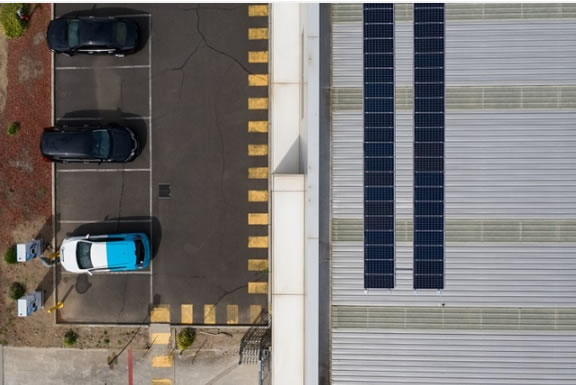
(Source: CSIRO official website)
According to foreign media reports, the Australian National Scientific Research Organization (CSIRO) has introduced new technologies that connect rooftop solar energy and batteries to support electric vehicle charging. Even in midsummer, the charging system works well.
Nowadays, there are more and more electric vehicles on the road in Australia, and the demand for infrastructure is also increasing, which puts pressure on grid charging stations. The new solar electric vehicle charging station can make full use of renewable energy and ease the pressure on the grid during peak hours. These charging stations are designed for ordinary Australian households to overcome a series of charging problems for electric vehicles, including managing temperatures on the hottest days. With new technologies, it is also possible to charge multiple cars in areas with limited grid power, such as home garages and public parking lots.
CSIRO researchers collaborated with Delta Electronics and Nissan Australia to develop and test the system, using a series of thermal management strategies to ensure that the battery is effectively charged and discharged. Dr. Christopher Munnings, principal researcher at the CSIRO Hybrid Energy System Center, said that 90% of electric vehicles can be charged at home. "Ordinary household charging systems are usually unable to charge cars on hot days because overheating will cause the charging speed to slow down. We have devised a method to manage the battery temperature to minimize the demand for grid power. In homes with multiple electric cars, the system can automatically monitor each car and distribute the load between the battery, solar photovoltaic, and the rest of the home.
"This means that the car is charging faster, using as much sunlight as possible, and there is no need to upgrade the grid connection. This technology can accelerate the promotion of electric vehicles."
Nissan ’s headquarters in Dandenong, Australia, has installed three solar charging modules, each of which can charge four cars. These modules will be tested and evaluated for more than 200 days, including the peak summer season. Researchers will evaluate the data collected throughout the test period to confirm the relevant environment and cost-effectiveness. (Author: Elisha)
ZHITONG PIPE VALVE TECHNOLOGY CO.,LTD , https://www.ztongvalve.com
